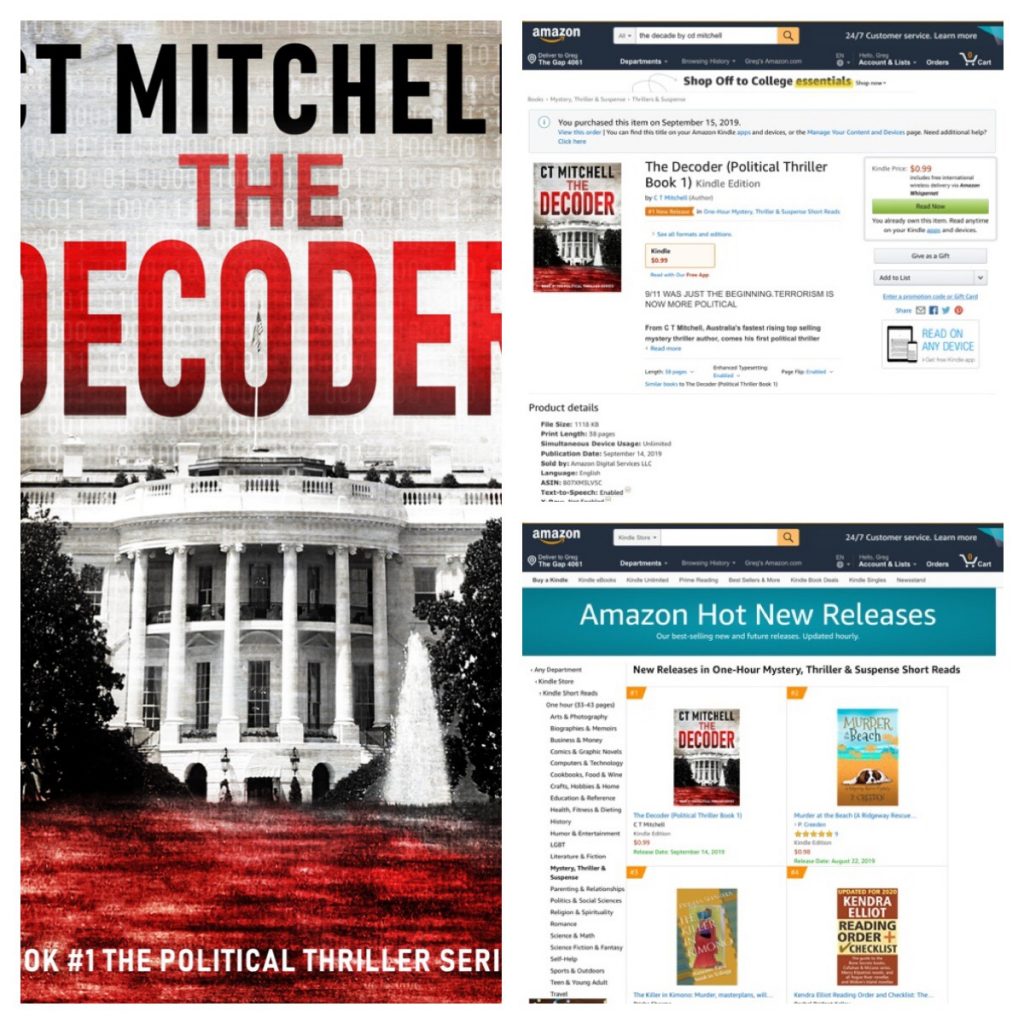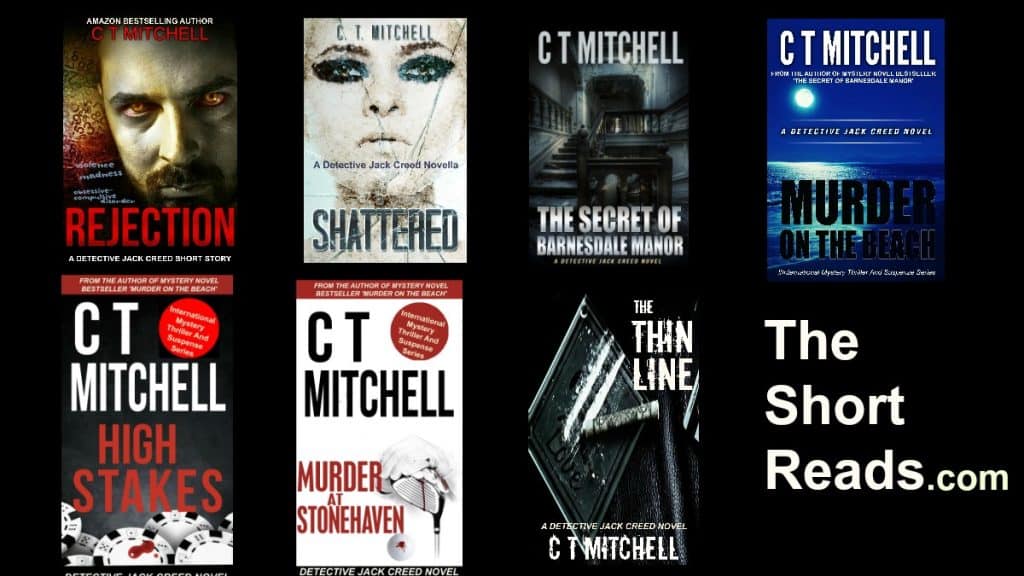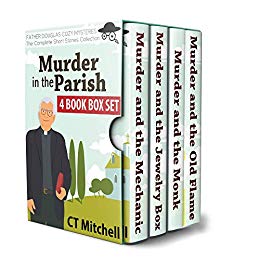Category Archives for Uncategorized
Amazon Thriller The Decoder Hits #1 In 6 Hours

C T Mitchell readers go crazy for his new political thriller
Within 6 hours, The Decoder, hit #1 on Amazon’s Hot New Releases in Mystery, Thriller & Suspense Kindle Short Reads.
Here’s what C T Mitchell said
For those not familiar with this Australian mystery thriller bestselling author, here, part of Chapter 1 of The Decoder
Chapter 1
The city was quiet at the crack of dawn. The suburbs were relatively normal with just the flicker of the orange sun over the trees. Children were rousing from their slumber waking to a new day. Los Angeles was a bustle of activity but this one moment of solitude was something many didn’t have.
Tanya considered herself one of the lucky ones. Emily was her only child, perfect in her eyes but sometimes she could get on her last nerve. The constant demand of motherhood wasn’t uncommon but she was trying to juggle a career and a life at home at the same time. It wasn’t easy doing it alone, frazzled and hanging by a thread of her sanity but somehow, she persevered.
She was standing mesmerized by the laundry in the basement of her apartment building. It was spinning hypnotically. She didn’t put herself out there afraid of what most men wanted and how far they were willing to go to get it.
Being invisible had its advantages and she tried to stay below the radar in a job that had her working her fingers to the bone. It meant sacrifice and sometimes her daughter fell through the cracks despite her best efforts. She was 8-years-old with an opinion about everything.
Dressed casually in a tight pair of jeans and baggy dark sweater didn’t exactly flatter her figure. Her hair was up in curlers but she was relatively sure her quiet paradise would not be disturbed. What she wasn’t expecting was a male voice clearing his throat.
“I’m sorry and my intention was not to scare you. I live across the street.” William proffered his hand and was summarily rebuffed with a cautious eye of disapproval.
He always depended on his charm and seductive blue eyes to make any woman feel comfortable in his presence. It was the first time he couldn’t find the right words to encourage a friendly banter.
Her diminutive stature and beguiling green eyes caught him off guard. He was hovering over her with the scent of her perfume heavy in the air. It was sweet and high intoxicating. It was making him light-headed and dizzy. It wasn’t what he was expecting.
Tanya was subtle about the way she roamed her eyes up and down his masculine form. She loved tall men and he was quite compelling in the way he looked at her. She couldn’t stop thinking about how it had been too long since she had been satisfied beyond words. Her skin became clammy and her pulse raced a little bit faster. The white t-shirt was bulging with his muscles threatening to tear through the fabric with the slightest movement.
To continue reading The Decoder, click here getbook.at/thedecoder
Share
What Length Is A Short Story?

What Length is a Short Story?

What length is a story is short? It sounds like a brain teaser, but the question is asked by many aspiring short story writers – what is the right length for my short story?
Of course, the answer will be different depending on the author, the story and the intended publication. But even though there isn’t a single solution to creating the perfect story length, there are a few consistent ways to decide how long a short story should be.
What is a Short Story?

A short story is a work of fiction that is relatively quick to read. That’s about the only thing that is set in stone – while most short stories focus on a single plot line, with few characters, through a short space of time, other short stories might be more complicated.
Authors might use a short story format to explore an interesting character, or to quickly set up a world for a storyline to play out. Short stories come in a wide range of genres, although some genres are more popular for short stories than others.
More than the length or genre, the most important part of a short story is the impression it has on the reader in a short amount of time. The author has to find the sweet spot between carefully choosing their words and telling a meaningful, impacting story that will stay with the reader.
Story Length
Of course, there are many opinions on the correct word counts for each classification of story length – however, the following types of story length are based on generally accepted word counts:
- Microfiction: Up to 100 words
There is a very famous piece of microfiction attributed to Ernest Hemingway – legend has it that in order to win a bet, he wrote a story using only six words:
“For sale: baby shoes, never worn.”
Microfiction (sometimes called microflash) is extremely difficult to write well, but there is a market for this story length. Publishers can easily fit microfiction onto a page, making it desirable for some publications.
- Flash fiction: 100 to 1,000 words
Flash fiction delivers humour, romance or fantasy in a bite-sized story. Often found in magazines and online publications, flash fiction is a snapshot of a story that can be included on a page and quickly consumed by the reader.
- Short story: 500 to 7,500 words
The most common word count for a short story falls within this range. Each publication will have its own preference, but 7,500 words is a widely accepted upper limit. That being said, others consider any work less than 10,000 words to be a short story.
Once an author exceeds 10,000 words, they have left the “short story” grouping and are creating a novelette (7,500 to 25,000 words), a novella (10,000 to 70,000 words) or a novel (50,000 words or more). Each of these word lengths have their own strengths and weaknesses, but they are unlikely to achieve the convenient length and punchy impact of a short story.
Choosing a Length
Obviously, there’s a lot of leeway in how long a story can be and still classify as a short story – a work of 500 words and another of 7,500 words are both short stories, but are likely to be very different.
There are other factors to think about in order to decide the right length for a storyline. Some aspects to consider when deciding the right length are:
- How long does my story take to tell? It sounds simple, but it’s really important – a story should use as many words as it needs to tell the tale. Lengthy stories might need a sharp eye to cut out unnecessary passages, and authors writing stories on the shorter side have to pay special attention to setting the scene and how they develop characters.
But ultimately, the story should be as long as it needs to be – no more, no less.
- Is it likely to get published? Some short story lengths have wider appeal to a range of different publications. For many short story publications and competitions, a submission of over 3,500 words will have less chance of being accepted.
If the short story isn’t specifically written with a publishing destination in mind, it might be helpful to keep it on the shorter side to increase its appeal.
- Does it meet publishing guidelines? If the story is written with a specific destination in mind, the publication or competition will have rules that the author should stick to in order to increase the likelihood of acceptance.
Publishers and competitions will almost always have submission guidelines available, and the word count is an important factor that decides whether or not a story will make the cut.
- Can it be read in a single sitting? Edgar Allen Poe described the ideal short story length as one that is able to be read in a single sitting, and it’s a helpful concept for the author to keep in mind.
Modern readers are often time poor and reading on mobile devices, so a short story that is gripping but can be quickly consumed is likely to find a wide audience.
Creating Short Stories

The most basic definition of a short story is a work of fiction that is between 500 to 7,500 words long, but there are many other factors that can influence the exact number of words included in a short story.
Short stories have to keep the attention of their readers. They have to fit in well with the publication they are destined for, meeting word counts and other criteria. They have to leave an impression on their readers. And of course, they have to be worth reading.
If a story is well told, it will have appeal regardless of the length. Creating a short story is an excellent way to provide readers with an easily consumable piece of fiction that draws them in and leaves an impression.
Really, the perfect short story length is however long it takes to accomplish that feat.
Have you claimed your short story?
Share5 Things I Learnt From Pricks

In a world of 7 billion people there are possibly 3.5 billion pricks. One thing is for sure there are 7 billion arseholes.
The trick for us is to determine who isn’t a prick or arsehole in order to live a better life.
Here’s my observations and lessons I’ve learned.
- Leopards never change their spots, neither do pricks.
Once a prick, always a prick.
Some pricks try to show different sides. Some appear to have empathy, show kindness to you but it’s really a wolf in sheep’s clothing trying to lure you in for a kill.
There’s always an agenda with a prick and it’s not yours.
Pricks never change their spots; they’re always spotted dicks. - Pricks are not good people
A lot talk about being good people, but they’re not.
Hypocrites at best, snake oil salesman at the worst.
There’s a dude I know who says “Greg you’re one of the good guys”. But getting this guy to commit to a coffee or lunch is impossible.
I’ve tried for years. I’ve been rejected for years. I would constantly beat myself up after each knock back. But why I used to think? He say’s I’m a good guy?
But what I’ve realised is that good doesn’t mean valuable. I’m not seen as bringing value to him.
He’s rather hang out with other pricks not good people. And I’m fine with that now. - Pricks have no conscious
They stick their heads in everywhere without a moral compass.
They are users, not givers. It’s all about them. Once they’ve had their feast they move on.
I used to lunch with a prick every month for about 20 years. He always bagged his wife and sprouted his weekly conquests.
I heard on the grapevine he has testicular cancer. Sixty seven is not old to die, except if you are a prick. - Pricks are queer
There’s a saying “there’s nothing queerer than folk”. The same applies to pricks.
Over time I’ve done things to stay on the right side of people. Keep your friends close; keep your enemies even closer principle.
But this philosophy doesn’t always reciprocate with pricks. Some days they give you a tick, others they ignore you 100%.
In April I turned 60 – a milestone. Seven hundred plus likes and hundreds of comments from good people.
But the pricks did neither. Another mystery. Pricks are queer. - Pricks have no honour
There’s no honour amongst thieves, nor in the prick club.
It’s all about who can be the bigger prick. Who can out fox the other prick to further advance their own needs.
Conclusion
Pricks are easy to spot. They smell.
They smell of self-centerness. They see others as pawns to advance their own journey.
As good people we need to recognise that these people exist and not to give them any air, in our world at least.
It’s time to choose ourselves and not be part of a prick’s world.
